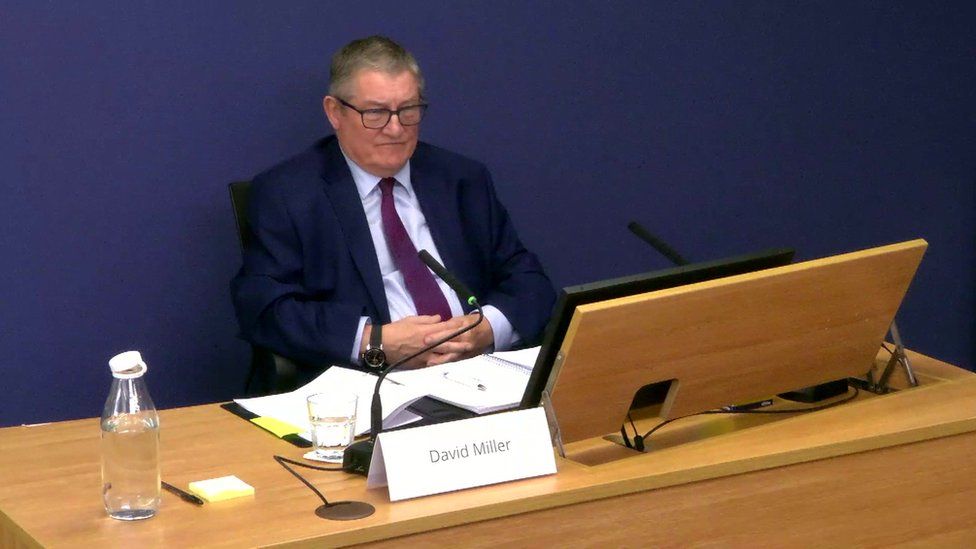ARTICLE AD BOX

David Miller eventually became chief operating officer at the Post Office
By Tom Espiner
Business reporter, BBC News
The person in charge of getting the Horizon system up and running has said he should not have told the Post Office board the system was "robust" in 1999.
David Miller was recorded as saying the system was "fit for purpose" at a board meeting in July 1999 after testing.
However, Mr Miller admitted he was aware that sub-postmasters were having problems with it a month before.
For more than 15 years from 1999, the Post Office insisted Horizon was robust when prosecuting sub-postmasters.
But many were having difficulty balancing accounts during a live trial of the system in May 1999.
Mr Miller was also aware of other problems with the system that had occurred that during testing that March.
And in August of that year, auditors EY flagged concerns with "accounting integrity issues" during a live trial of Horizon to Mr Miller.
He had previously told an inquiry into the Horizon scandal that he would not have told the board in 1999 that the system was robust.
But giving fresh evidence to the inquiry on Tuesday, he said that although he does not recall telling the board that, if it is noted in the minutes then he must have done.
"I should not have said that it was robust," he said.
However, he said he had believed there were processes in place to improve the system after feedback from sub-postmasters.
Mr Miller was in charge of putting the Horizon system in place from 1998 until early 2000. After that, he rose up the ranks to become chief operations officer.
Mr Miller also said he regrets not letting the head of the Post Office investigations team, Tony Marsh, and group lawyers know about problems with inaccuracies in the system which were still being addressed in early 2000.
"On reflection, and I have reflected on this very hard, when I finished being the Horizon programme director [in early 2000] it would have been very beneficial if I had notified both the lawyers and the [investigations team] that Horizon was a new system coming in, and that they should be very cautious about evidence coming out of that system," he said.
Between 1999 and 2015, the Post Office prosecuted more than 700 sub-postmasters using faulty data from the Horizon system.
Mr Miller said that he had been aware since 1970 that the Post Office performed its own investigations and prosecutions.
He said he now recognised that there was a problem in the Post Office being the alleged victim of financial crime by sub-postmasters, as well as the investigator of those alleged crimes, and the prosecutor - although he did not think there was a conflict of interest at the time.
Mr Miller also said he regretted a "missed opportunity" in not reading testimony from an IT expert 2003 which called the Horizon system "clearly defective".
The report was prepared for a civil case that the Post Office brought against sub-postmistress Julie Wolstenholme, who ran a branch in Cleveleys, Lancashire.
The Post Office pursued her for £25,000 and as part of the case, instructed IT expert Jason Coyne to assess whether she was responsible for the losses.
When he flagged discrepancies in the software, he was "effectively sacked" and the Post Office "attempted to discredit the report internally", according to Mr Coyne.
Mr Miller said had he read the report at the time, he would have "taken action to address the issues raised".
He added that had Ms Wolstenholme won a tribunal appeal against the Post Office in 2002 for unfair dismissal it would have been a "significant challenge to the business model" of the Post Office.
"What she was doing would be considered by me and others to be a threat to the whole," he said. "If she was wanting to change the sub-postmasters' contract and challenged that, that would be a significant challenge to the business model."
"So, that would have been, when I say that, I mean that it would have changed the economics of how we ran the business if she had won her case."

 1 year ago
43
1 year ago
43








 English (US) ·
English (US) ·